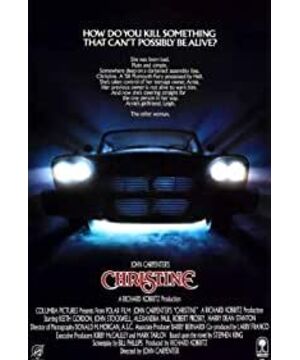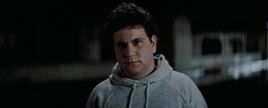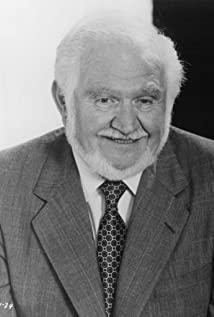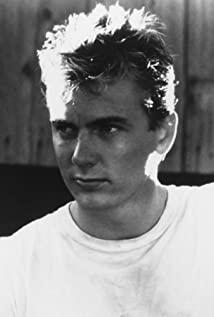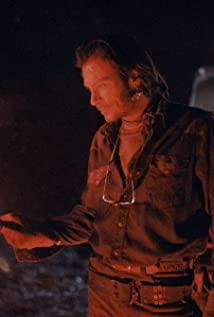Watching a movie can not only see the story on the surface, but also "disassemble" the plot elements and images in it. The meaning of the image is floating and flowing, so the process of reorganizing the image can gain a new understanding. No one would doubt that this is a movie about young people's emotions. It runs through family and friendship and love, describing individual frustration and resistance. The core of the movie is not the weirdness of "car killing", but the inner world of the hero that is mirrored by the "anger" and "hypothesis" of the car. The following attempts to look at this movie from a psychoanalytic point of view.
The emotional clues surrounding the male protagonist are family, friends, lovers, and self. The break of balance starts with buying a car. Buying a car signifies that the male protagonist confronts the fierce transformation of the world with a confrontational attitude. The relationship between the male protagonist and his friends is very good. They talked about love and sex in the car. This is the fermentation period of psychological transformation. The maturity of the body made the matter of meeting the opposite sex impact the male protagonist's psychology. The male protagonist was more resistant to love at first, he said, "It's better to rely on yourself". When friends started chasing girls, the male protagonist began to fluctuate in the psychological sense. The main one in this article speculates that the male protagonist has implicit homosexuality towards his friends. This emotion is cleverly hidden by the movie. This is the male protagonist. The inner tension of emotional out-of-balance lies.
Regarding the male protagonist’s potential homosexual feelings towards his friends, the following points are presented. The first is the care of the male protagonist by his friends in life. The male protagonist is more frizzy and weak. When he is bullied, his friend will protect him. When he is bullied, his friend will drive to pick him up. He also needs the help of his friends when he can open the closet by himself (note that the closet "closet" can be connected with the phrase "come out of the closet", which means "come out of the closet"). There is a very important scene. When a beautiful girl strikes up a friend of the male lead, the male lead stands behind the girl and makes faces to imitate her. This beautiful girl replaces the male lead expressing the voice of her friend. She is the male lead’s inner feelings. spokesman". But the friend unexpectedly chose someone else. The neglect of that beautiful girl also marked the frustration of the emotional line between the male protagonist and the friend. In the emotional relationship at this moment, women are the male protagonist’s rivals.
The Oedipus relationship between the male protagonist in the family and the triangle relationship between friends and girlfriends echo each other, and the three are friends and enemies. After the male protagonist competes for the girl pursued by his friends, his friend and him are just in a competitive relationship position. When the girl appears, the girl and the male protagonist are in a competitive relationship with the friend. Does the hero really like girls? This is questionable. The male protagonist's emotions towards girls are contradictory and implicitly hostile (because they are also rivals after all). He has a slanderous evaluation of her, that she is "sexually hungry" and that their relationship is driven by a physical relationship. There is a boy mentality of "slut humiliation" here. The parental alliance and the alliance of friends and girlfriends have made the male protagonist experience frustration and collapse. This is conveyed by the tragic confrontation in the last scene. He cannot simply possess anyone between his friend and his girlfriend because the other party is betraying him. He, this is the hatred he experienced deep in his heart. When the male lead’s friend is emotionally close to his girlfriend, the scene of the two people drinking in the car is like an explosion of love-breaking emotion. The dependent friendship is disturbed by the girl, and the binary relationship turns into a ternary relationship. The root of this kind of ambivalence comes from the cowardly father and the mother with strong control in the family. This family structure causes the male protagonist’s Electra complex and the Oedipus complex to become an irreconcilable contradiction, and bisexuality at a loss leads to love. Involved in an unresolved situation with friendship.
Returning to the clues of family emotions, we find that the male lead's father is weak, and his father's authority has been deprived of his mother's control. The male owner’s purchase of a car is a spiritual separation from his mother. The car is given the male owner’s personal projection. It is a sign of male identity (and continues to include the part of female identity. The male owner’s girlfriend said, "This car is a girl." Indicates the meaning of dual sex). The psychological impulse to get rid of the control of the mother and defeat the father broke out in the family, which was repeated between friends and lovers. The male protagonist defeats his friends by competing for women (corresponding to his father), and abandons his girlfriend because he loves his car (narcissistic state) (corresponding to his mother). The male protagonist has experienced a lot of frustration, and his anger points to everyone and even himself. He said that "the duty of parents is to slowly kill their children". This is not crazy words, but the most real hatred experience.
The male lead’s mother controlled everything and commented on everything, completely eliminating the male lead’s masculinity, and the father was powerless, so the male lead identified with the femininity. After buying a car, my mother threatened "not to park at home." The separation experience is focused here. The car that was forced to park in the parking lot was attacked. Protect yourself at all times. But the male protagonist was bullied precisely because of the mother’s “overprotection”. Her over-protection is a terrible mind control. She made the male protagonist lose his autonomy and personal power. Buying a car is a symbol of forcibly getting rid of his mother's control. The irritable owner of the repair shop symbolizes the social power of crushing the male lead. Although the male lead is full of disgust but can't do anything about it, he endures spiritual exploitation in his heart in order to implement the separation from his mother. Just like the unfair treatment of young people who have just entered the society, the lack of independence and strong temperament leads to frequent bullying by the male protagonist. This is a huge price for him to break into the road of independence.
The destruction of a car in a repair shop is a repetition of being traumatized by campus bullying. This is a horrible experience when a male protagonist confronts the male group directly. It is recognized that femininity can avoid castration in the psychological sense, but choosing a male position requires dealing with cruelty. Struggle relationship. His sense of fear can be equated with "castration anxiety". The male protagonist's actual experience of castration anxiety is over-sensitive, and he experiences it as "suffering destruction." With great hatred, he did not identify with the male group, but launched a fierce resistance. The impulse to kill the parking lot boss is equivalent to the impulse to kill the father. The lack of paternal superego makes the mental structure lose stability, death anxiety and sexual instinct lose the limitation of the dam, and the mental state at this time is similar to madness.
Entering the male position requires facing the fear of castration, what about entering the female position? It seems to be frustrated, because friends did not accept the male protagonist as a female gesture to fall in love, after all, the male protagonist lost to the woman. In the movie, the emotional combination of friends and girlfriends gave the male protagonist the experience of "double frustration", and the earliest moment of this double frustration occurred in the original scene (parents unite to frustrate the child). The energy recovery of adolescence led to the recovery of subconscious inhibition. now.
The male protagonist chooses to agree that women also have a horrible experience. This is shown in the process of the male protagonist and his girlfriend trying to shake the car. He saw his girlfriend stuck in his throat in the car cinema and was rescued by a stranger. I have to say that this rescue scene contains The "illusion of perception" of sex. This is probably the emergence of the original scene. The child witnessed the trauma of parental union and created an impression of "sex is hurting". Therefore, in the movie, the male protagonist said to the girl "I think he is hurting you", which is probably a manifestation of this inner concept. . If the collision and crushing of the car at the end of the film are regarded as sexual metaphors, then the destruction of the car is also a fantasy of death caused by sex (the girlfriend also appeared near death when he was about to have sex with the male protagonist in the car. Imagery).
View more about Christine reviews


